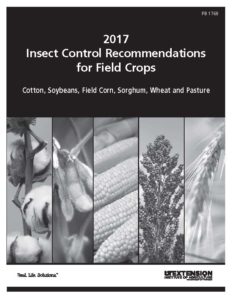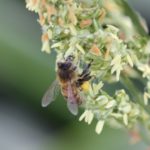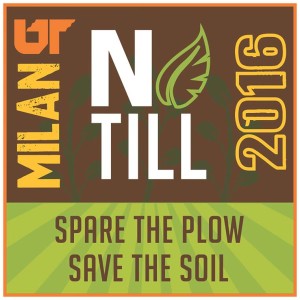 The University of Tennessee’s 2017 Insect Control Recommendations for Cotton, Soybean, Corn, Sorghum, Wheat and Pastures (PB 1768) is now available online. Once available, hard copies will be distributed at Cotton Focus, grain conferences, and other crop production meetings.
The University of Tennessee’s 2017 Insect Control Recommendations for Cotton, Soybean, Corn, Sorghum, Wheat and Pastures (PB 1768) is now available online. Once available, hard copies will be distributed at Cotton Focus, grain conferences, and other crop production meetings.
Some features you may have overlooked in the back of the book include:
- Listing of insecticide classes (mode of action) and registration numbers
- A list of common “generic” trade names for various insecticides
- Tables ranking the relative efficacy of insecticides on common pests
- Tips to minimize pesticide effects on pollinators



